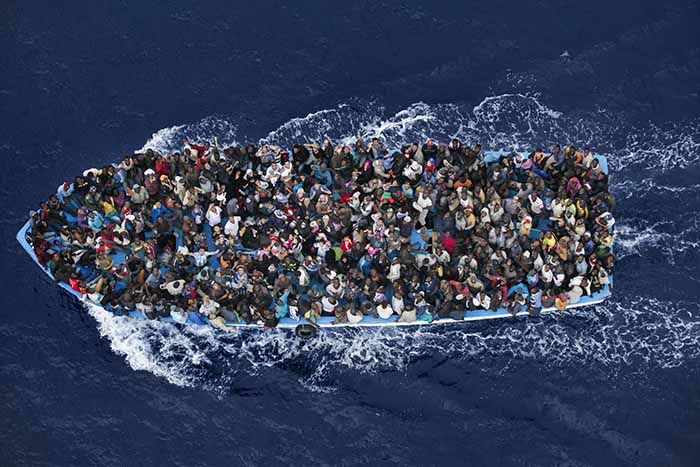Paris Riots Erupt in Response to Tragic Death of a Boy by Police
The riots following a teenager's death expose deep-rooted issues in France's law enforcement. Urgent reforms are crucial

Paris has been engulfed in widespread unrest and violent protests following the tragic death of a 17-year-old boy during a police traffic stop. The incident, which occurred in the suburb of Nanterre, has ignited deep-seated grievances against the French police and led to acts of vandalism, clashes with authorities, and the torching of cars and barricades. This blog post aims to provide a comprehensive overview of the Paris riots, examining the events surrounding the death of the young boy, the subsequent protests, and the wider implications of police violence in France. It is important to approach this topic with sensitivity and acknowledge the perspectives of all parties involved.
The incident that sparked the Paris riots involved the fatal shooting of a 17-year-old driver, identified as Nahel, during a traffic stop. Initial police accounts were contradicted by video footage, which showed an officer pointing a gun at the driver before shooting as the car attempted to drive away. The teenager tragically lost his life despite emergency aid efforts. This incident was not an isolated event, as it marked the second police shooting death during a traffic stop in France that year. The video footage, revealing a different sequence of events from the initial police claims, generated public outrage and led to intensified scrutiny of police actions.
Defiant gatherings have taken place across various cities, including Paris, Lyon, Strasbourg, and Nice. The protests were characterized by acts of vandalism, clashes with law enforcement, and the setting ablaze of barricades and cars. Tear gas was deployed, and there were reports of looting and ransacking of banks. Over 150 arrests were made as tensions escalated. While some protests turned violent, peaceful demonstrations in memory of the teenager also took place.
French President Emmanuel Macron condemned the incident as "unjustifiable" and emphasized that the death of a young man is inexcusable. He called for justice to be served and appealed for calm amid the unrest. An additional 2,000 police officers were deployed to address the situation. However, anger and frustration remain widespread, as protesters demand accountability and action to address police violence.
These riots have reignited long-standing grievances against the French police and sparked renewed discussions about police violence in the country. The incident has highlighted concerns over excessive use of force, the need for improved police training and accountability, and the impact of racial profiling. It has further exacerbated tensions between law enforcement and marginalized communities, underscoring the need for meaningful dialogue and systemic reforms.
The protests serve as a poignant reminder of the profound societal impact that incidents involving police misconduct can have. Activists and civil rights organizations have demanded justice for the young boy and called for comprehensive reforms to address systemic issues within law enforcement. They have advocated for enhanced transparency, accountability mechanisms, and cultural sensitivity training for police officers. Public pressure continues to mount, pushing for tangible change to prevent similar tragedies in the future.
What can we take from these riots?
As the nation grapples with the aftermath of these tragic events, it is essential to promote open dialogue, constructive engagement, and peaceful demonstrations. Meaningful discussions between community leaders, law enforcement officials, and policymakers can pave the way for transformative change and foster a society where justice, equality, and safety are upheld.
In the pursuit of justice, a thorough and impartial investigation into the incident is crucial. Holding the responsible parties accountable and ensuring transparency in the legal process will be vital in rebuilding public trust and addressing the underlying issues that led to this tragedy.
It is also important to acknowledge that instances of police violence are not unique to France. Around the world, communities are grappling with similar challenges, highlighting the need for a global conversation on policing practices and reform. Sharing best practices, learning from successful models, and engaging in international cooperation can contribute to comprehensive solutions that promote safety, respect human rights, and strengthen police-community relations.
Furthermore, the role of media in shaping public perception and awareness cannot be understated. Accurate and responsible reporting that provides an unbiased account of events, coupled with in-depth analysis of the systemic issues at play, can facilitate a nuanced understanding of the complexities surrounding police violence. This, in turn, can foster empathy, awareness, and informed discussions among the general public.
In conclusion, the Paris riots triggered by the death of a 17-year-old boy during a police traffic stop have laid bare the deep-seated issues of police violence, accountability, and systemic injustice. The protests serve as a powerful reminder that urgent and comprehensive reforms are necessary to address these issues effectively. By engaging in constructive dialogue, demanding accountability, and advocating for systemic changes, there is hope for a future where law enforcement serves and protects all members of society without discrimination or excessive use of force.




